Varun Grover, the screenplay writer of Neeraj Ghaywan’s MASAAN, is more than just a man with a pen (or laptop). He has a voice, and it’s being heard.
Here he speaks freely about writing, and about his multi-faceted career:
Many know that you’re an IIT graduate who quit the salary scene (not unlike Neeraj) to become a writer. Apart from inspiring your NFDC Screenwriters’ lab script ‘Maa Bhagwatiya IIT Coaching’, how else has that educational phase inspired your writing career?
A. Writing (if not living itself) is all about gaining experiences and the more diverse experiences one has the better the references and insights in the writing. So in a way, I was blessed to have seen the academic circles up close, lived that life of taking exams seriously, reading Hindu Businessline to prepare for IIM interviews, getting a white collar job and being surprised by getting a salary all of a sudden (“mera apna paisa!” I used to think and chuckle), and also seeing the hollowness of the ‘career growth charts’ my peers were living by.
So that IIT Coaching script was possibly the least valuable of all things I gained from that life on the other side. Most of the richer gains were in perspective, making intimate connections to a universe where the adventures are of a different kind (monetary, mostly).
And one tangible gain has been that discipline comes easy to me. Waking up early or sticking to a diet or meeting deadlines – jab jaisi zaroorat ho waisa karna aasaan hota hai. I think it’s because of being a serious student during my Engineering days.
Except Dum Laga Ke Haisha, you’ve been a lyricist for mostly independent films. Is that a conscious choice? Is your style more suited to the earthy hinterland scene (GoW, Katiyabaaz, Ankhon Dekhi)?
A. Well, it’s a two-way traffic. Most of the times, only indie projects approach me. Even after DLKH (just like after GoW), i haven’t been offered a single album. (And no, am not complaining but just saying may be there’s an andheri-west-consciousness (like cosmic-consciousness) at work here. I don’t write without reading a script. That sounds arrogant to some people but I feel music works only when the film works. So that cuts out some of the projects I guess. Plus am juggling between being a scriptwriter, a standup comedian, and a lyrics writer so that anyway leaves me with little time for lyrics so i prefer working on films that resonate with me.
Earthy/Hinterland comes easy to me. Khadi-boli is still surviving there and I love writing in that language. But at the same time I don’t think i can’t write dialect-neutral or simple/mainstream lyrics. As a writer the only thing am arrogant about is – I can write for ANYTHING. Or I should be able to. Any genre, any kind of setting, any kind of project. For example, an urban rom-com will be so much fun to write for. Even horror or slasher or slapstick comedy.
You are one of the finest standup comics in this country. How related is your standup career to your film career? Was it a stepping stone, or simply a passion that you will continue to pursue?
A. Standup comedy is one place where am able to express myself without any friction losses. No one else is interpreting or translating my thoughts for the audience and that’s why i think i’ll keep doing it till a major backlash (which is always just around the corner in India) makes me rethink.
A. I do get philosophical at times thinking, why the fuck am i joking about every random thing, and then I switch off for a couple of weeks. Or try not to tweet jokes and tweet only poetry or short stories or music I am consuming. Because the present-day twitter has kind of made standup-comics on twitter look redundant, if not absolutely talentless hacks. They may still be kings on the stage, with good reason, but it’s a new craft that’s developing – call it twitter-comedy may be? Memes, stories in 140, trolling, etc. – so many new genres. And twitter is full of specialists in these genres.
While writing MASAAN, how did you go about the entire process? Whose idea was it? And at what stage did Neeraj and you pitch it at?
A. Neeraj had a short film idea, based on a Dom boy’s love story with an upper-caste girl. He had spent nearly 6 months in Banaras during the shoot of GoW and like a romantic, he wanted to go back to the place and that’s why he thought of an idea based in Banaras. So this story originated from Neeraj’s need to spend some time in Banaras, again.
He told me the idea for feedback and I was not very kicked about it initially. I felt it was too hurried a script and this story needed a time-span which is difficult to show in a short film. Then we kept discussing and Neeraj decided this could be a full-length feature. But now the dilemma was that it didn’t have enough ‘plot’ to be a full-length feature. Then we decided to go the ‘Inarittu’ way and make it a multi-story script. We started exploring the characters and eco-system from that short and found some more interesting characters around the ghaats and interiors of Banaras.
When we had a vague story in our hands, we headed to Banaras for a month in September 2012 and started meeting people. Two very resourceful journalists (Utpal Pathak and Abhay Tripathi) helped us in getting access to various places (like the haveli of Dom Raja, the king of the creamtion ghaats) and our story gained shape.
We came back to Bombay with a treatment note and then i started writing the screenplay and dialogues. After 3rd or 4th draft, sometime in March 2013, we sent the script to an informal script lab being run by Vikramaditya Motwane (comprising of Vik, Sudip Sharma, Navdeep Singh, Anvita Dutt, Devashish Makhija, Akshat Verma, and Abhishek Chaubey) and got a very positive and helpful feedback. Another couple of drafts later, Phantom Films decided to come on-board as a producer.
A. The thing I love the most about writing is the detailing. That’s kind of my speciality, I think. I love filling in those details about the setting, mood, dialects, locally available foods etc.
So I would like to think my drafts are very detailed. But still, it’s always good to have a hands-on Director and a knowledgeable local person to add to the final draft. Like in Masaan, we had Utpal Pathak and another senior journalist from Banaras, Amitabh Bhattacharya to add many more details to the ‘Kashika’ dialect spoken by Dom community in the film, as well as tips on the costumes (like Doms being Shiva-devotees wear a lot of blues) and interior design.
Is writing as technical a craft as editing, cinematography, sound designing? There’s no hierarchy; they’re all equal parts of a process. Then why is it that a writer here is always asked, “script toh theek hai, direct kab kar rahe ho?”
A. Writing is technical but not in the conventional sense like cinematography or sound editing is. I’d say closer to editing, where a few tools or grammar rules are needed but beyond that it’s a lot of instinct, common sense, and ‘trying things out’.
I think people asking that question, most of the times, have these hierarchies in their heads and they want to see you grow, or push you towards that mythical growth. Like those relatives asking ‘Bachha kab kar rahe ho!’
You’ve gone to Cannes with your first feature film, and now have a Wikipedia page. Don’t say nothing has changed. (yes, this is a question)
A. (Laughs) Well, yes, things have changed. But my constant effort is to raise my game as bigger opportunities come my way. Also, as a writer, one needs to constantly be a learner and not settle for the cliches, which also means that being up-to-date with the latest cliches in the market is also a task.
In terms of external changes – yes, people sometimes do recognise me (mainly due to my standup comedy) and that is always an awkward moment. Taking compliments seems to be the easiest job but i just can’t handle it.

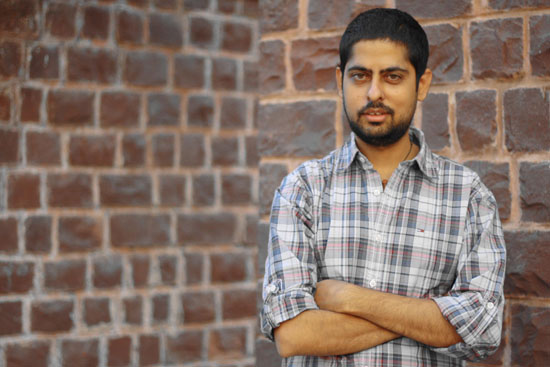
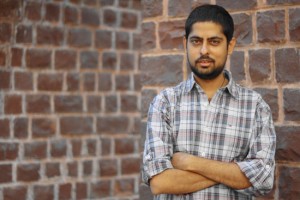

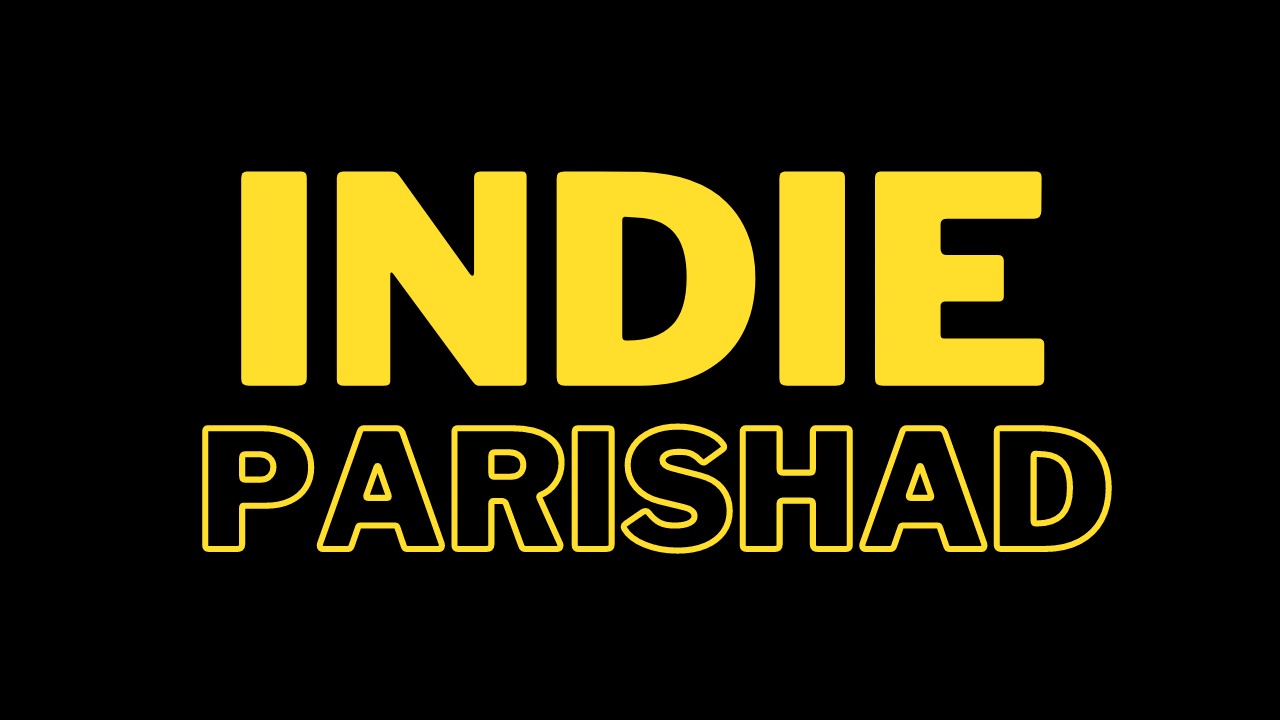
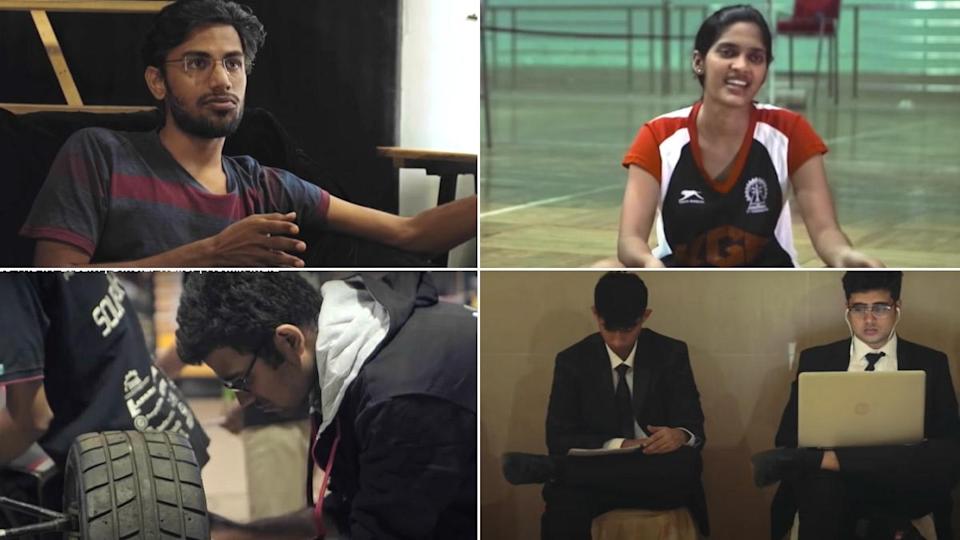
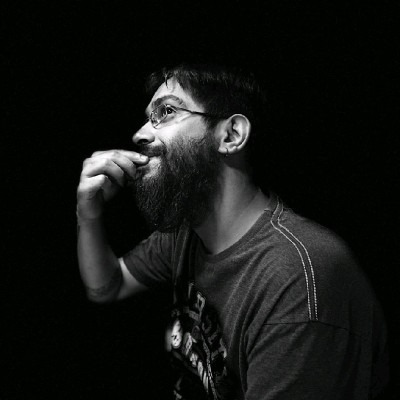

Leave A Comment
You must be logged in to post a comment.